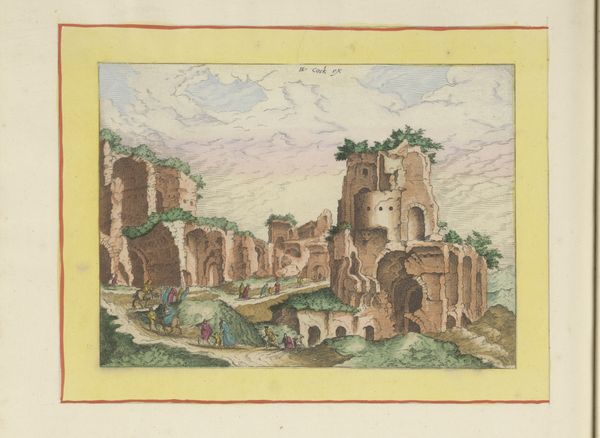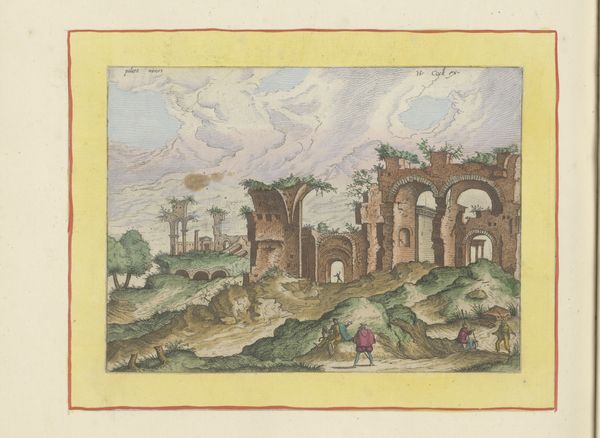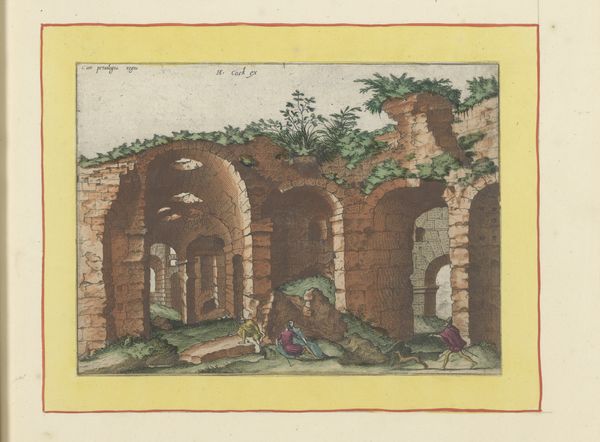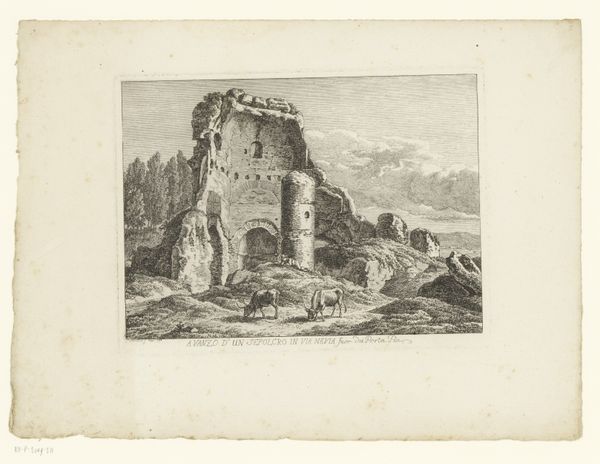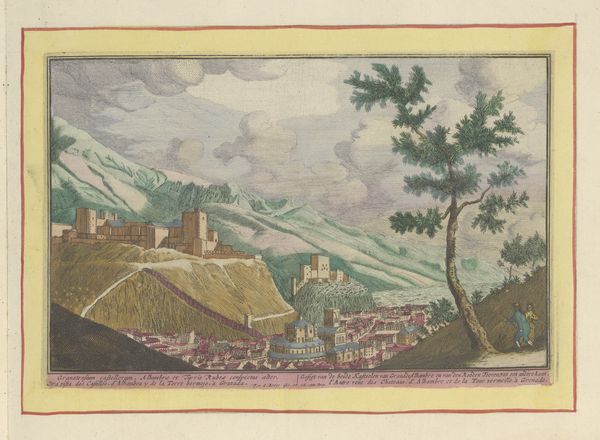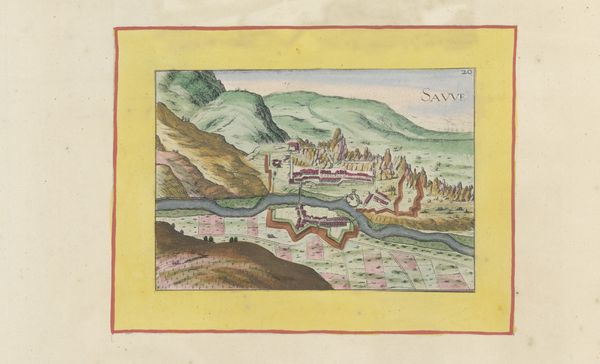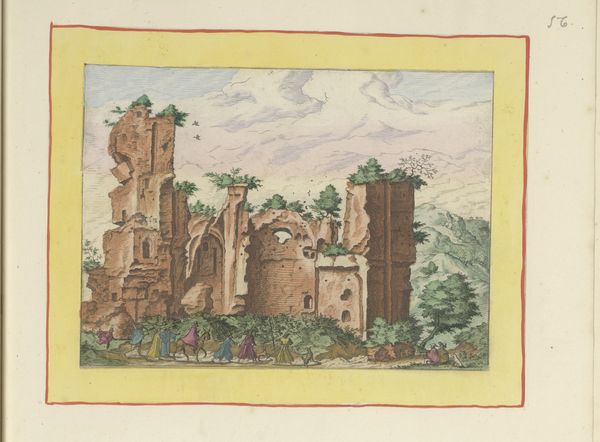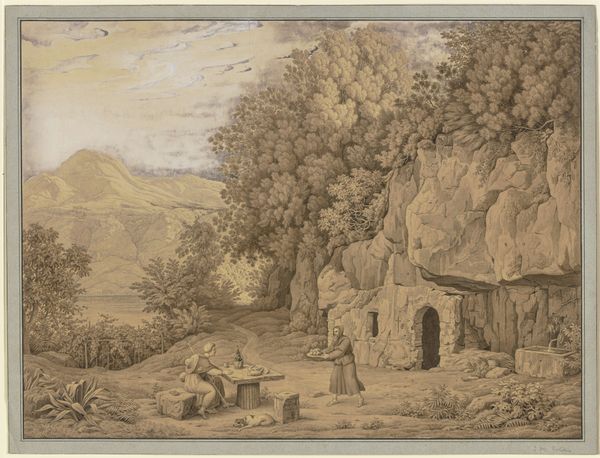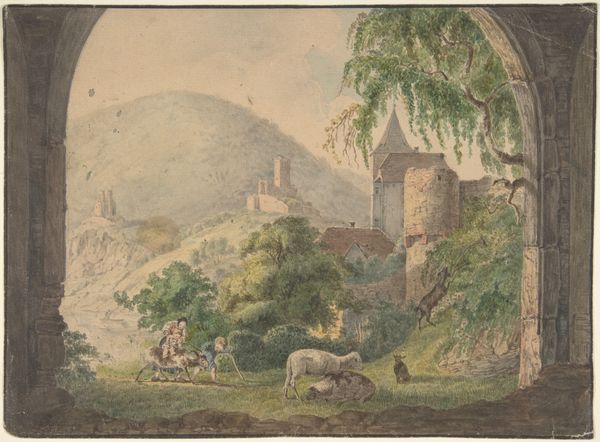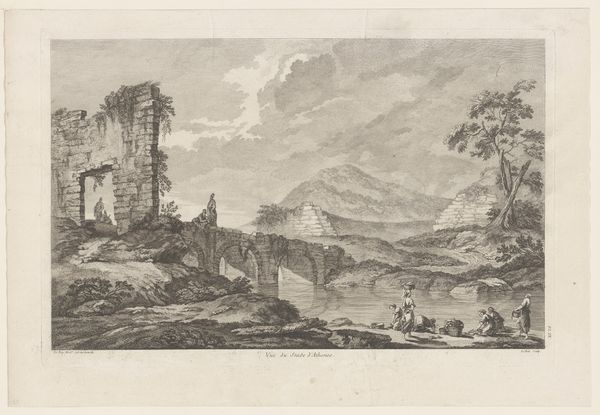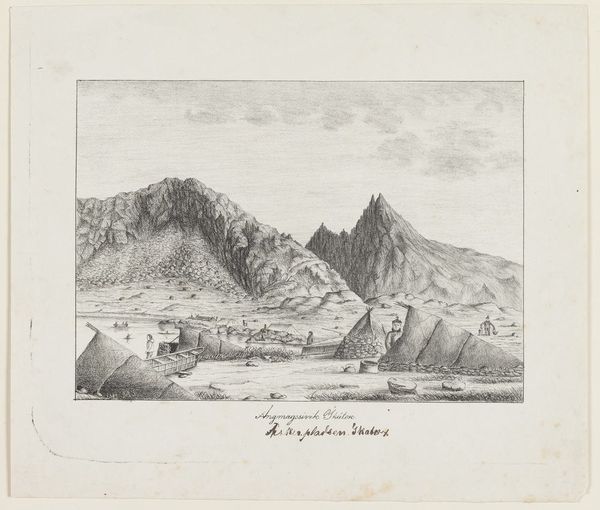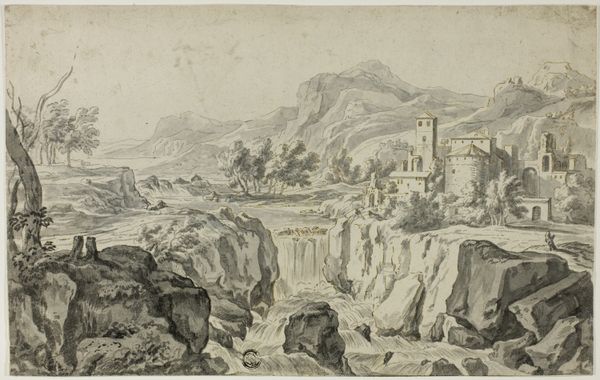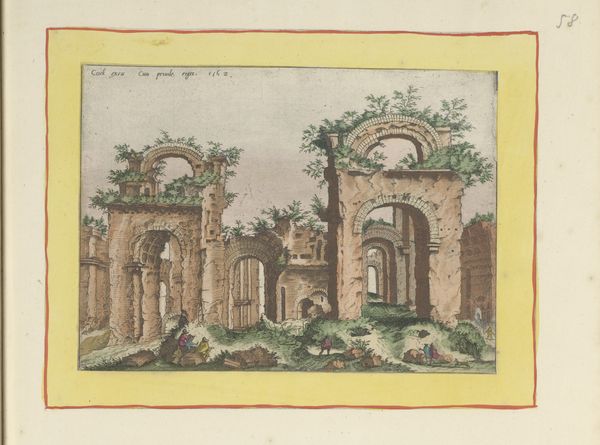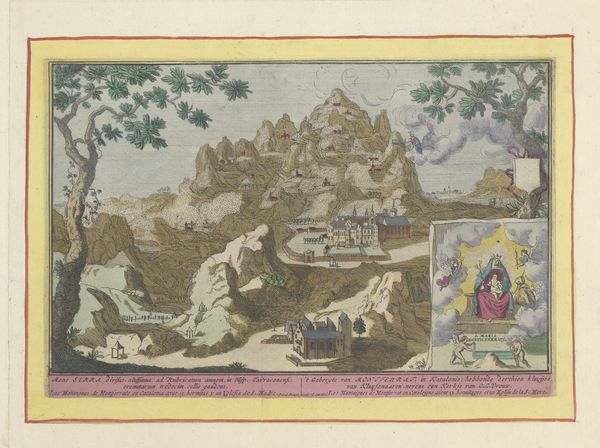
print, engraving, architecture
#
baroque
# print
#
landscape
#
figuration
#
engraving
#
architecture
Dimensions: height 154 mm, width 214 mm
Copyright: Rijks Museum: Open Domain
Joannes van Doetechum created this print, "Ruins with a Group of Figures in the Foreground," in the Netherlands during the late 16th century. Its depiction of classical ruins populated with contemporary figures reflects a broader interest in the antique world during the Renaissance. But why would a Dutch artist be so interested in Roman ruins? Well, the ruins serve as a potent symbol of the transience of power and empire. The scattered figures amongst them could be read as a commentary on the fleeting nature of human existence in the face of history. Consider that this image was made during the height of the Dutch Revolt against Spanish rule. The print may be seen as a subtle commentary on the political struggles of the time, with the ruins serving as a metaphor for the crumbling of empires, and perhaps even a veiled critique of Spanish power. Historical context is crucial, and further research into Doetechum's life, the political climate of the Netherlands, and the iconography of ruins in Renaissance art would help us understand the social role of art in this period.
Comments
No comments
Be the first to comment and join the conversation on the ultimate creative platform.
